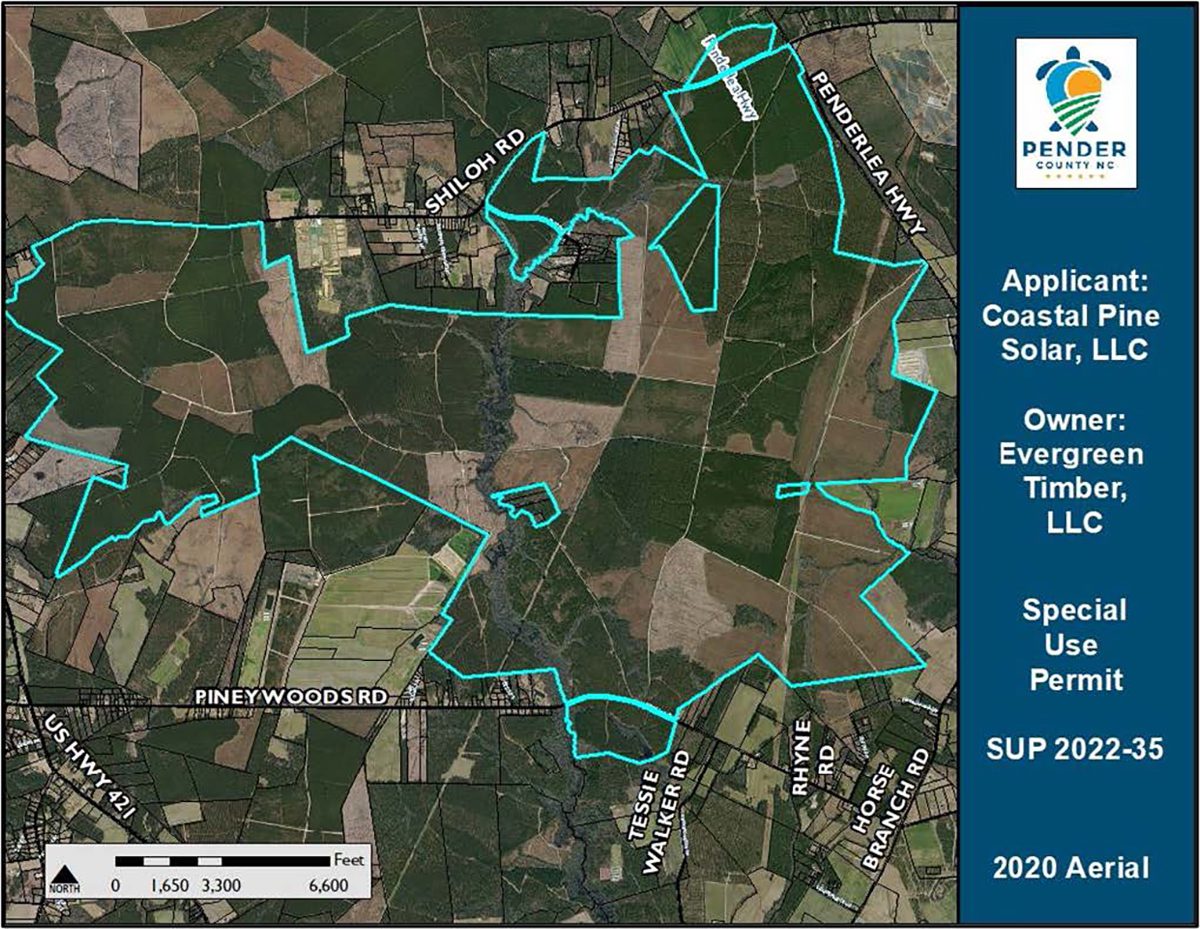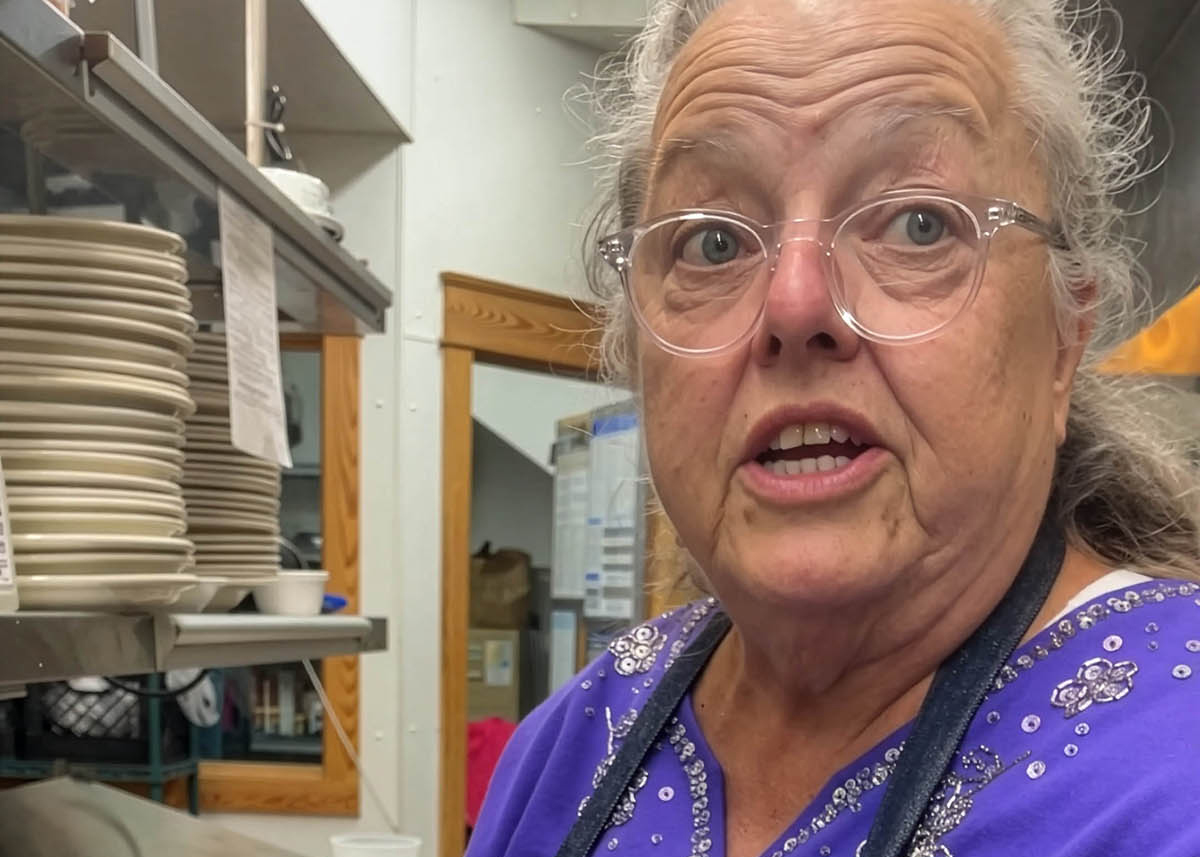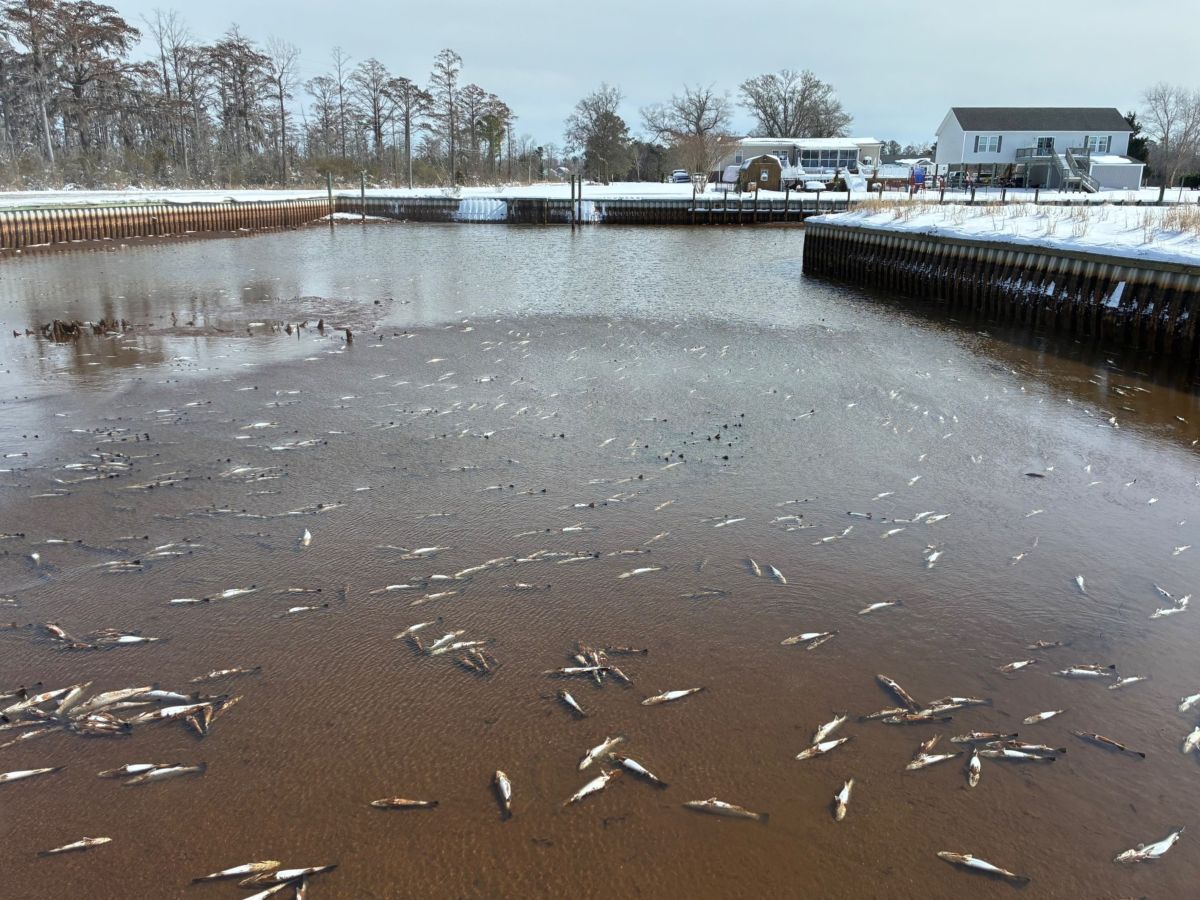
Note to our regular readers: Coastal Review will not publish Dec. 23-27. Our next edition will be Dec. 28.
Pender County commissioners have narrowed the areas where solar farms may be developed, a move county officials say is not intended to be unsupportive of the alternative energy source, but gives them time to “properly regulate” it.
Supporter Spotlight
Commissioners unanimously amended a portion of Pender’s zoning text Dec. 5, less than a week after a California-based solar company filed a lawsuit against the county for turning down the company’s request for a special-use permit to build a 2,360-acre facility in the western part of the county.
Coastal Pine Solar LLC sought the permit to develop a proposed 200-megawatt farm on timberland within an area of the county zoned rural agricultural, or RA.
The freshly adopted text amendments to the county’s unified development ordinance no longer allow “other electric power generation” to be developed by way of a special use permit in RA, residential performance and planned development zoning districts. “Other electric power generation” includes solar, wind and tidal-generated power.

“Since there’s no special-use permit their only option as far as pursuing a sight plan approval for solar would be to go through the conditional rezoning process,” Justin Brantley, Pender’s interim planning and community development director, said during the board’s Dec. 5 meeting. “At that point the planning board and board of commissioners have far more flexibility approving or denying those projects or requiring specific conditions.”
The amendments also stripped large-scale commercial alternative power generation as a use allowed by right within the county’s industrial transitional and general industrial zoning districts. A special-use permit must now be obtained to develop in those districts.
Supporter Spotlight
Brantley said the county’s land use plan “strongly supports” the adoption of specific standards for alternative energy development within the county.
Such standards could include requiring setbacks, buffers, maintenance plans and decommissioning plans. A majority of Pender’s neighboring counties have at least some combination of those special standards in place.
Brantley said Pender residents who’ve spent their lifetimes living in rural parts of the county may not be ready for “that type of change,” or what a large-scale solar farm might bring.
“That’s why we want to explore text amendments that support stronger buffers, requiring a vegetative buffer, nondisturbed, around the perimeter, preservation of wetlands, setbacks from wetlands, that sort of thing,” he said. “Pender County highly values its agricultural heritage here and while we may encourage solar farms to some extent we want to find a balance there to balance those existing agriculture uses and new forms of energy.”
“This is not saying that Pender County does not support solar farms,” said Commissioner Chairwoman Jackie Newton. “It’s just properly regulating” it.
In a court petition filed Nov. 30 in Pender County Superior Court by Coastal Pine’s attorneys, the company states it presented “voluminous written materials, expert reports, and the testimony of five expert witnesses” to show all of the county’s standards had been met to obtain a special-use permit.
That evidence was presented during a Sept. 19 hearing before the board of commissioners.
In the end, commissioners disregarded the evidence, did not base its findings on the county’s special-use permit standards, and misapplied a provision in the county’s zoning ordinance, according to the lawsuit. Coastal Pine presented the county with a decommissioning plan.
The suit also states that one county commissioner, through his own admission during the September hearing, said he’d spoken with farmers “and those conversations had an impact on him.” Coastal Pine’s attorneys call those conversations, which the commissioner disclosed after the public hearing, “improper” and caused him to pre-form an opinion.
“Evidence in zoning quasi-judicial matters is defined and treated the same as evidence in court,” Tom Terrell Jr., an attorney representing Coastal Pine, wrote in an email responding to questions earlier this week. “Opinions are not considered evidence, and judges are not allowed to base their decision on unsworn testimony from the man on the street who has not heard the evidence and whose statements are not subject to cross-examination.”
Terrell, a Greensboro-based attorney and partner with Fox Rothschild LLP, said in a Dec. 19 email he was not aware commissioners had adopted the zoning text amendments.
Coastal Pines asks the court to reverse the board of commissioner’s decision and remand with instructions to issue the special-use permit.
Pender County hosts several solar farms, including a 675-acre, 105-megawatt facility that generates energy to international pharmaceutical giant Novo Nordisk.
According to the Solar Energies Industry Association latest published data, North Carolina is ranked fourth nationally in solar power with more than 8,000 megawatts of solar installed, enough to power more than 955,000 homes.
The total solar investment in the state is $11 billion.







